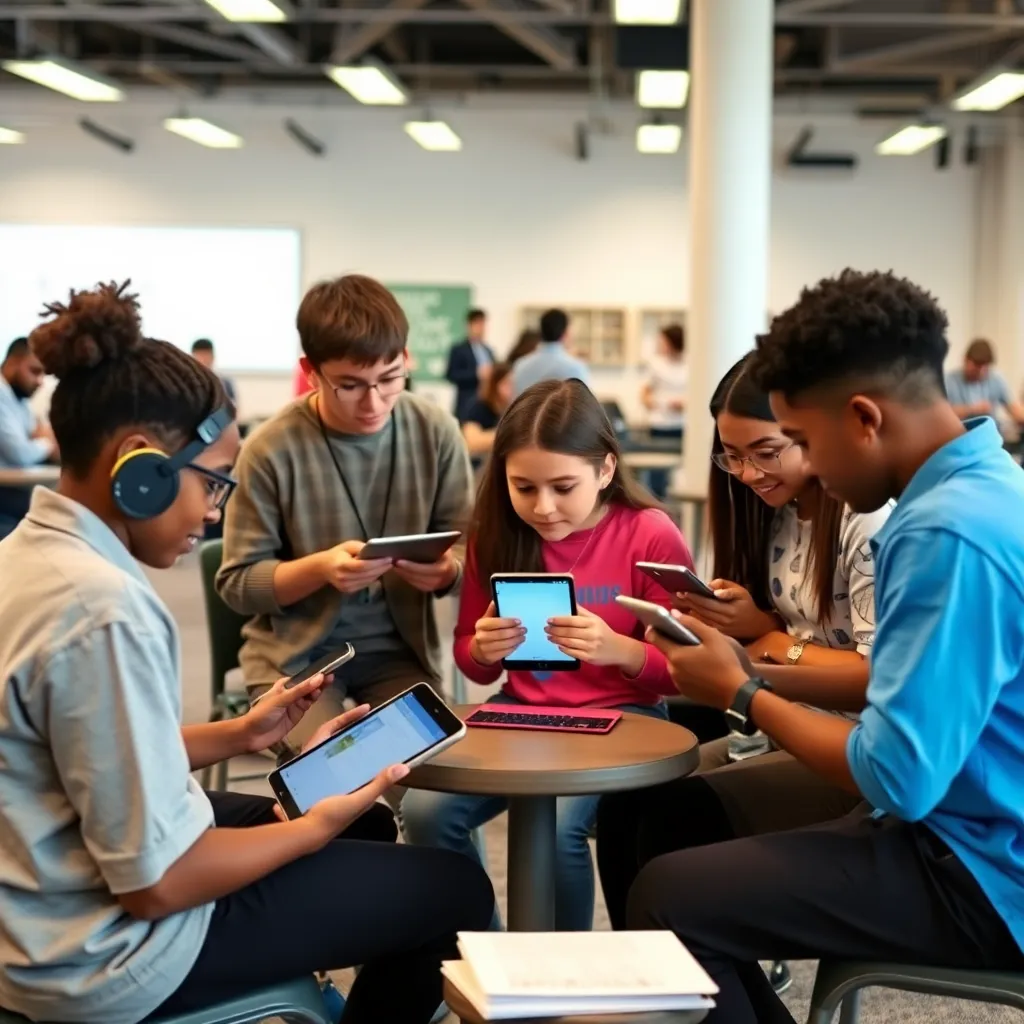

Students using diverse devices in collaborative learning environment.
Boston – A recent study conducted by Boston University reveals significant changes in the way college students engage with technology and digital media. The report, published on November 18, 2024, highlights trends affecting both educational methods and social interactions on campus.
The investigation was led by a team of researchers at Boston University, aiming to understand the evolving relationship between students and technology. Researchers surveyed over 1,000 students from diverse backgrounds across various disciplines to gather comprehensive data.
The study uncovered that _more than 70 percent_ of college students now use ad-blocking software during their online activities. The researchers indicated that this trend has implications for both digital advertising practices and the way content is consumed by students. The survey also discovered that students who utilize ad blockers reported feeling overwhelmed by advertisements, leading to an increased reliance on software to manage their online experiences.
The findings specifically pertain to college campuses in _Boston_, where technology access and the impact of online ads are critical to students’ daily lives. The researchers stressed that these patterns reflect a broader shift in how young adults interact with technology across educational environments.
The data collection phase took place over several weeks in October and early November 2024, with the final report released on November 18, 2024. Researchers aimed to ensure that the data accurately reflected recent trends and behaviors among students.
The insights from this study are vital, as they shed light on the growing concern surrounding digital advertising and its impact on user experience. The findings suggest that students are not only seeking educational content but are also becoming increasingly savvy about their online presence. This awareness about ad fatigue could lead to future changes in how educational institutions communicate with students.
These results may signal a need for institutions to reevaluate their digital marketing strategies and find new ways to engage students without overwhelming them with ads. As students seek more meaningful interactions with content, it becomes essential for universities to adapt to their preferences.
The Boston University study provides valuable insights into the intersection of education and technology. The growing adoption of ad-blocking tools indicates a shift in preferences that educators must acknowledge. As colleges continue to adapt to these changes, understanding student needs regarding technology will be crucial for effective communication and engagement.
In summary, the findings from this research present a pivotal moment for both students and educational institutions as they navigate the complexities of technology in academic environments.
News Summary Myrtle Beach is currently grappling with severe wildfires that have led to a…
News Summary A heartbreaking murder-suicide in North Charleston has left the community in shock. Darius…
News Summary Over 170 wildfires are spreading across North and South Carolina, particularly affecting Myrtle…
News Summary A devastating two-vehicle collision in Darlington County on Friday evening claimed the lives…
News Summary In a thrilling Sweet 16 clash, the South Carolina Gamecocks narrowly defeated the…
News Summary On an enjoyable day in Baltimore, Paul M. D'Amore, founder of D'Amore Personal…